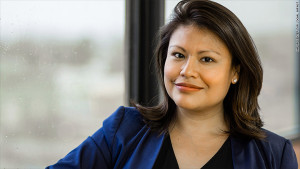
Latinos are almost non-existent in the world of venture capital. Only around 1% of all Latino-owned businesses created between 2007 and 2012 in the U.S. received venture capital or angel investments, this is according to a report from the Stanford Graduate School of Business which surveyed 1,800 businesses. One of the reasons for this is because Latino-owned firms aren’t even entering the venture capital firms market. To give you further insight on this, of all the firms that received venture capital, 87% had white founders, 12% were Asian-owned firms, and 1% were Black-owned companies, all of this according to the CB Insights.
Jeff Wasson, a partner at venture capital firm, Boost VC, said he has funded companies with founders from all over the world, including India, Pakistan, Eastern Europe and Israel. But he says Latino founders are a rare breed. “Maybe there are reasons that I can’t see that are closing doors to people, that are making them give up before they even try,” he said.
Carolina Huaranca, Kapor Capitals’ newest venture capital principal says that is the exact problem. “There’s a leaky pipeline to tech for Latinos. There are issues of education and access, even before we get into funding,” she says. Huaranca added that the biggest reason for this is the inadequate educational system that many of the schools Latinos attend. She states that those schools are underfunded, overcrowded, or both.
In order to remedy this problem Huaranca is helping to keep the door open for young people of color, Kapor created the Level Playing Field Institute (LPFI,) a non-profit which runs free programs like Summer Math and Science Honors (SMASH). The STEM-intensive college prep program, which began in California, brings ninth graders to live on a college campus for five weeks and introduces them to everything from how to start their own company to how to enter the venture capital field. The program has been such a success that the program is expanding to Morehouse College, a historically black college located in Atlanta, Georgia. Morehouse is the fifth school to join SMASH and the first one located outside of California.
Silicon Valley’s insularity can create its own problems. “When I came to the Valley I visited a friend at a tech company,” Huaranca said. “There was a big catered party, and when they were cleaning up, someone handed me a plate.” Only 2% of principals at venture capital firms with decision making positions are African-American or Latino, according to the National Venture Capital Association.Now on the other side she’s happy to be at Kapor, which only invests in startups that establish “appropriate” diversity goals. They must also invest in resources that mitigate bias in recruiting, hiring, and employment, among other criteria. The firm’s portfolio is more than 50% diverse setting the example for those in Silicon Valley. “Women, Latino and black founders are creating companies based on their experiences,” she said.

Recent Comments